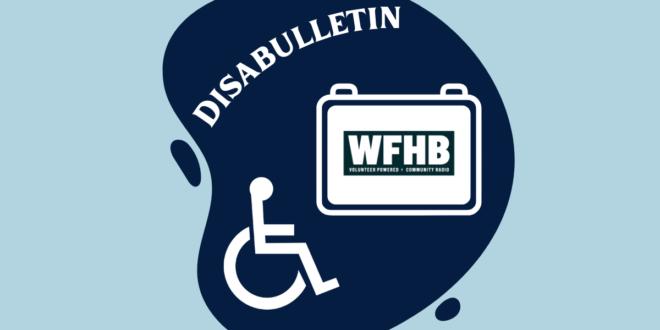Podcast: Play in new window | Download (Duration: 4:54 — 6.8MB)
Subscribe: RSS
In a lawsuit filed July 29 between Westchester county based Westchester Disabled on the Move Inc (WDOMI), Lyft officials said the company is exempt from the Americans with Disabilities Act and doesn’t have to cater to people with non-folding wheelchairs.
According to a report directly from NBC News,
- “This lawsuit with has been pending since 2017, when WDOMI filed it against Lyft for failure to accommodate people with non-foldable wheelchairs that don’t fold.
- Currently, the ride-sharing company won’t make wheelchair-accessible vehicles (or WAVs) available to passengers with non-folding wheelchairs in areas outside of where Lyft is required by state laws to do so (or “non-access” regions, as disability rights groups call them).
- While Advocates aren’t seeking any financial compensation, they are lobbying for Lyft to help WAV drivers reach riders by both allowing drivers to categorize their vehicles as WAVs and turning off any app blockers that prevent riders from selecting the company’s accessible option.
- Lyft contends that since it is a technology and not a transportation company, they are therefore not subject to regulations in Title III of the Americans with Disabilities Act requiring it to ensure the availability of wheelchair-accessible vehicles.”
- In court documents filed by Lyft and its website, “the company offers WAV services through an “Access” ride option on the app in the nine cities that require the company to do so. In regions where this “Access” mode isn’t available, riders are directed to other transportation options, according to court documents. Lyft said in the filing that it can’t simply “turn on” “Access” mode to connect riders with WAV drivers in other areas because there aren’t enough of those vehicles.”
- A Lyft spokesperson commented in the NBC report that a lack of driver availability was one of the issues preventing the sufficient delivery of WAV requests: “There is an extremely limited supply of these specially manufactured vehicles across the country and even fewer among the population of rideshare drivers. Despite these obstacles, we’re constantly working to improve the reliability of the service and find solutions to address supply challenges.”
- At this time, Lyft works alongside third-party providers to supply WAV vehicles and recruit drivers with have WAVs, though Lyft officials argue such solutions aren’t possible nationally.
- “Additionally, the high cost of wheelchair-accessible vehicles (converting a van into a WAV could cost up to $30,000) and the “small” population of people in the U.S. who use non-folding wheelchairs also contributed to the lack of WAV service.”
- “Where the supply and demand for service is very low, the platform does not perform well and there is very low, or in some cases no, use,” Lyft officials additionally said in court documents. The American Academy of Physical Medicine and Rehabilitation says roughly 5.5 million adults use a wheelchair for mobility — both foldable and non-folding.
- However, WDOMI Attorney Jeremiah Frei-Pearson argues that the number of drivers with WAVs isn’t as big an issue as Lyft claims. Since Lyft already provides accessible rides in cities located in states with government regulations, including Boston, Chicago, Dallas, Los Angeles, New York, Philadelphia, Portland, Phoenix, San Francisco, WDOMI hopes to pressure Lyft into making this access available nationwide.
- “Lyft needs to provide wheelchair-accessible service to everyone. To do that, all Lyft has to do is turn off the blocker — or toggle — that prevents people from identifying their vehicles as WAVs and prevents riders from requesting WAVs” said Frei Pearson.
- This isn’t the first time Lyft has been sued for inaccessibility.
- According to the NBC report, “Lyft, Uber and Via settled a suit against New York City in 2018 in which they opposed rules that would impose accessibility requirements on the ride-share companies. In the end, they agreed to provide wheelchair-accessible riders to passengers quicker. In 2020, Lyft settled a lawsuit brought by the Department of Justice that required the company to accommodate riders who use foldable wheelchairs and pay a fine to four people who accused the company of discrimination. Lyft did not admit any wrongdoing in the 2020 suit.”
 WFHB Bloomington Community Radio
WFHB Bloomington Community Radio


